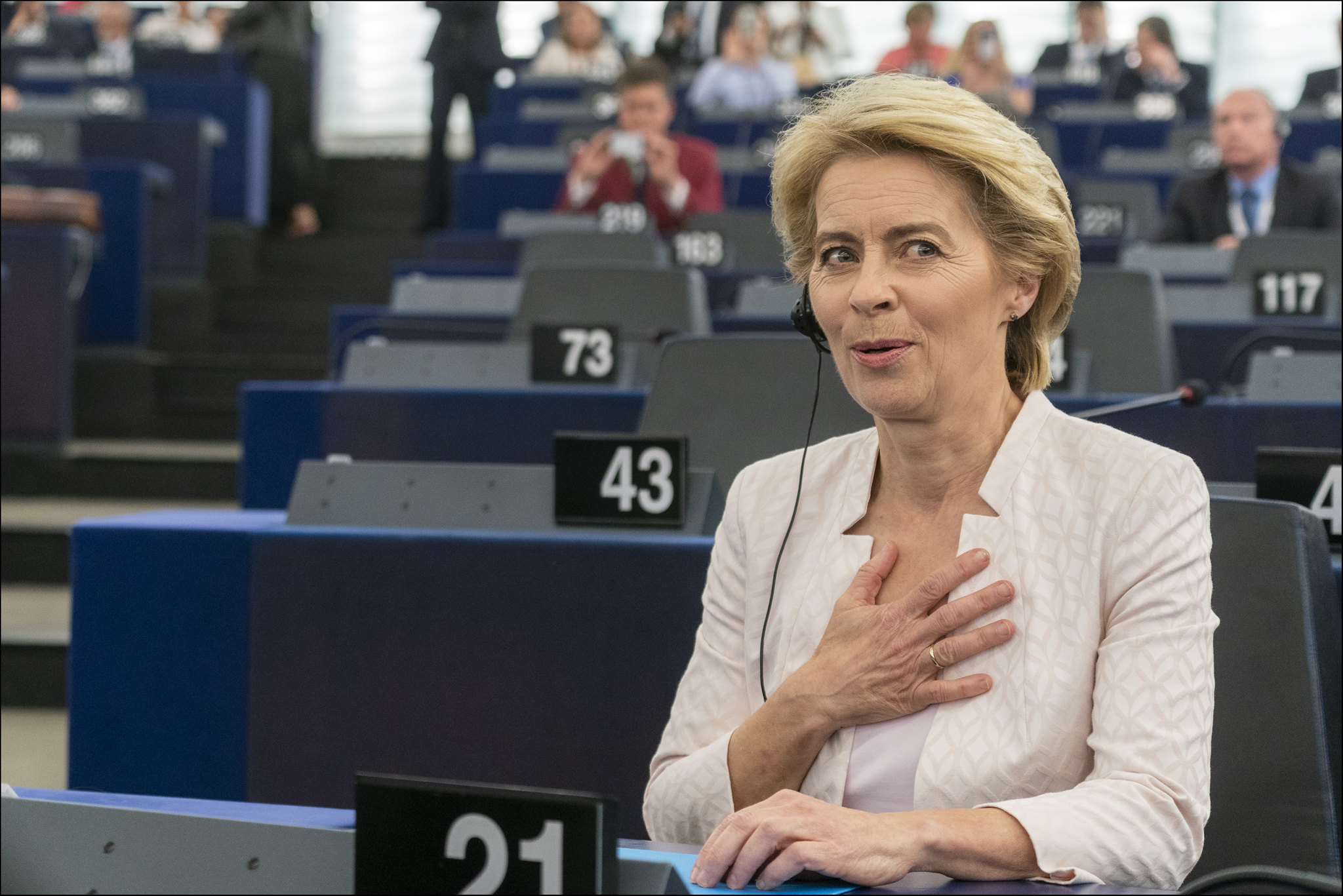I reveal to you the aims and wiles of Ursula von der Leyen

“Ursula von der Leyen has a serious ego problem. She has personalized her position and considers herself the President of Europe. His first term was a perpetual struggle for power." Excerpt from the European Mattinale
Ursula von der Leyen has a trust problem. This will influence MEPs' decision to vote for or against his reconfirmation as President of the European Commission, or to abstain in case of doubt. How much credit can we give to a president politicized on the right, whose party wants to cancel the Green deal? What value can be given to his promises and commitments? Ursula von der Leyen met with the political groups before the investiture vote and was not always convincing.
Voting discipline will be decisive. The vote is by secret ballot and allows each elected representative to express their confidence, doubts or rejection. Ursula von der Leyen is no longer a stranger. He led the European Commission for five years. Its qualities and defects are well known. “It won't change so suddenly,” one of our interlocutors told us.
Ursula von der Leyen has a serious ego problem. She has personalized her position and considers herself the President of Europe. His first term was a perpetual struggle for power. This has deteriorated his relations with the Prime Minister, the Belgian liberal Charles Michel, with the High Representative for Foreign Affairs, the Spanish socialist Josep Borrell, and with most of the members of the College of Commissioners, suffocated by the constant appeal to the “divide and conquer” tactic.
“It is normal that he wants a second mandate, but not that he takes personal credit for all the successes: there is a college of commissioners of different political beliefs,” Josep Borrell reminded the newspaper El Pais in a February interview. A few months later, the Spaniard co-signed a letter with commissioners Paolo Gentiloni, Nicolas Schmit and Thierry Breton, reminding the President of the rule of collegiality in the decision-making process. This was an unprecedented vote of no confidence in a Commission President and his closest team.
Mrs von der Leyen had just appointed Markus Pieper, an MEP from the EPP, her political family, to the position of special envoy for SMEs, without consulting the relevant commissioners and without respecting the procedure. This case of political favoritism also shook the European Parliament. Socialist, liberal and green groups criticized the appointment and called on the Commission to restart the procedure. Ursula von der Leyen refused, then changed her mind in the face of the outcry and risks to her reappointment. The mistrust aroused by "PieperGate", revealed by Mattinale Europeo, could weigh on the investiture vote on 18 July. Re-elected, German Green MEP Daniel Freund will not let the affair fall into oblivion. The votes of the Greens will be decisive in compensating the snipers of the European People's Party, the Socialists and the Liberals, the three groups that make up von der Leyen's majority.
The European Parliament does not have fond memories of Ursula von der Leyen's first mandate. The contempt he showed for the institution, leaving the chamber during the debates after listening to the presidents' speeches, without following the discussion with the individual deputies, left its mark. His refusal to follow the indications of the resolutions on the rule of law and his complacency towards the Hungarian Prime Minister Viktor Orban, bête noire of the Parliament, are another bad memory. Its subservience to the member states is a third black page in relations with deputies.
“Article 17-3 of the EU Treaty provides that the Commission is completely independent. He cannot receive instructions from any institution. The President of the Commission (guardian of the Treaties) violated this rule by clearly acting on behalf of the Council in releasing the sum of 10.2 billion euros of funds frozen for violation of the rule of law by Hungary", underlined the leader of the Volt Europa party in Belgium, the Dutch Sophie in't Veld. “The European Parliament must demand full clarity before voting on von der Leyen's nomination,” said in't Veld on 12 July.
The politicization of Ursula von der Leyen is another handicap. By becoming Spitzenkandidat of the EPP, he will no longer be above party politics and will cease to be neutral. “If von der Leyen ends up getting a second term, he will spend most of his time undoing what he did in the first,” underlined German journalist and columnist Wolfgang Münchau. The president has already begun to dismantle the Green Deal, a success of her first term, because some of its provisions are deemed too stringent by her political family. In the next parliamentary term, the EPP wants to use the review clauses to postpone the ban on the sale of internal combustion cars until 2035.
European leaders have decided to support his reappointment in the absence of a better candidate. The European Parliament could block this nomination by default. To avoid this trap, “Ursula von der Leyen must conclude a coalition agreement with a clearly defined majority before the European Parliament vote,” emphasizes European law professor Alberto Alemanno. There was no coalition agreement. But the presidential candidate has multiplied her promises and symbolic gestures. Yesterday the latest with the decision of a political boycott of the Hungarian presidency of the EU to punish Orban after his meeting with Putin. The threat of the far right is a formidable glue to convince socialists, liberals and greens. She needs 361 votes. The fact that the vote in the European Parliament was held on 18 July suggests that von der Leyen has won a majority.
This is a machine translation from Italian language of a post published on Start Magazine at the URL https://www.startmag.it/mondo/ursula-von-der-leyen-obiettivi-problemi/ on Wed, 17 Jul 2024 07:27:25 +0000.
